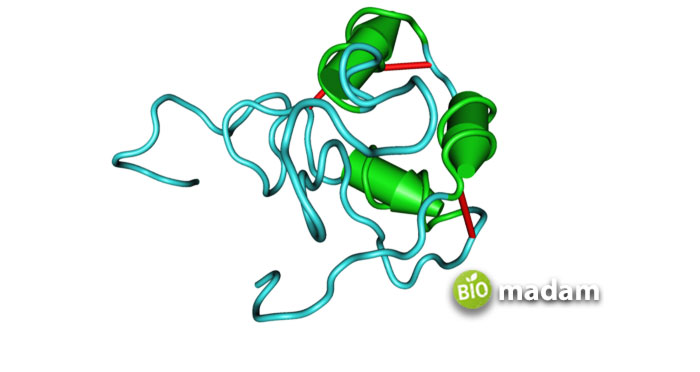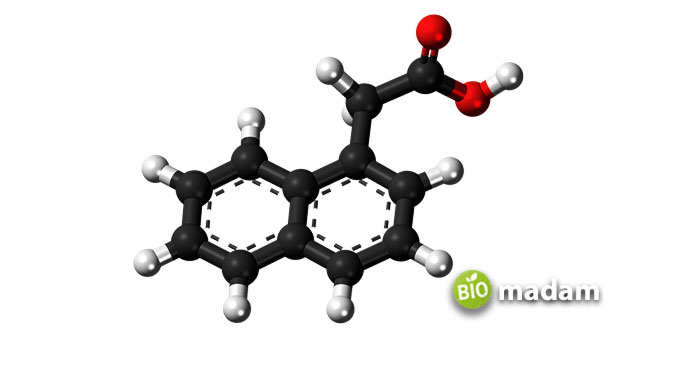Hormones are vital chemicals responsible for regulating many bodily functions. Endocrine glands produce hormones and send them into the bloodstream, where they carry out specific regulatory functions. These glands are ductless; they secrete their hormones directly into the bloodstream and not through a duct.
Endocrinology is the branch of medicine that deals with hormones and their functions. About 50 different hormones in the body control several body functions like metabolism, growth and development, mood and cognitive function, reproduction, and sexual health. Producing too much or too little of a hormone can lead to severe health problems.
The major hormones in the body include:
Insulin
Insulin is produced by the pancreas, a gland located in the abdomen. It regulates the way your body uses glucose. This hormone also plays a role in the breakdown of fats or protein for energy. If insulin levels are too low, blood glucose stays in the blood and cannot be converted to energy for body use. The effect of this is that the individual will begin to manifest symptoms of Type 1 diabetes and will have to take regular insulin shots to survive.
On the other hand, high amounts of circulating insulin in the body due to “insulin resistance” can lead to Type 2 diabetes. For more information, you can read here.

Human Growth Hormone
Human growth hormone is secreted by the pituitary gland situated at the base of the brain. This hormone helps children grow tall, increases muscle mass, and decreases body fat. It also plays a role in regulating metabolism.
Insufficient growth hormone levels can cause dwarfism marked by abnormally short stature with normal body proportions. Overproduction of this hormone can cause acromegaly, a condition characterized by the overgrowth of bones in the face, hands, and feet. Synthetic growth hormone injections are used to treat growth hormone deficiency.
Thyroid Hormones
The thyroid gland in front of the neck produces two main hormones, triiodothyronine (T3) and thyroxine (T4), which play vital roles in regulating metabolism. The hormones regulate the amount of energy the cells use up. The actions of the thyroid gland are regulated by the pituitary gland, which releases thyroid-stimulating hormone (TSH). The TSH, in turn, controls the thyroid gland.
When there is too much thyroid hormone production (hypothyroidism), the body uses up energy quickly. Resultantly, a person suffering from this condition might experience fatigue, an increased heart rate, goiter, heat sensitivity, vision problems, and weight loss. Anti-thyroid medications like radioactive iodine and surgical interventions can treat an overactive thyroid gland.

Conversely, too little thyroid hormone production (hypothyroidism) can lead to weight gain, fatigue, hoarseness, forgetfulness, and sensitivity to cold temperatures. A prevalent synthetic thyroid drug, thyroid S, is one of the most effective treatments for low thyroid levels in individuals with an underactive thyroid.
Cortisol
Cortisol is secreted by the adrenal glands located at the top of the kidneys. It is known as the stress hormone because it is released in response to a body’s stress levels. Cortisol plays a role in regulating blood sugar, inflammation, blood pressure, and a person’s sleep/wake cycle.
Too much cortisol in the blood can lead to Cushing’s syndrome, a condition marked by rapid weight gain, weakness, diabetes, and skin problems. If there is not enough cortisol in the blood, the individual can have Addison’s disease, a condition that results in muscle weakness, weight loss, low blood pressure, digestive disturbances, and changes in skin tone. Steroid drugs like dexamethasone, prednisone, and hydrocortisone are prescribed for treating low levels of cortisol.
Epinephrine (Adrenaline) and Norepinephrine (Noradrenaline)
Epinephrine and norepinephrine are also secreted by the adrenal glands, and they are released in stressful or frightful situations (fight or flight). In required circumstances, these hormones increase heart rate, narrow blood vessels, relax smooth muscles, and raise blood sugar levels to provide adequate energy to respond to such circumstances. The action of epinephrine primarily affects the heart, while norepinephrine mainly affects the blood vessels.
Synthetic epinephrine is administered in cases of anaphylaxis to open up a person’s airway or cardiac arrest to restart the heart. Norepinephrine may be used to treat septic shock by constricting blood vessels and raising blood pressure. Low levels of these hormones can lead to anxiety, sleep disorders, low blood sugar, and migraines. Too much epinephrine and norepinephrine in the blood can cause high blood pressure, heart palpitations, headaches, and excessive sweating.
Testosterone and Progesterone
Testosterone and progesterone are referred to as the male and female sex hormones, respectively. Testosterone is produced in the testes, while the ovaries produce progesterone.
Testosterone in men regulates muscle and bone mass, sex drive, fertility, fat distribution, and production of red blood cells. Low testosterone levels lead to hypogonadism marked by reduced libido, low sperm count, erectile dysfunction, loss of strength, body hair loss, and increased body fat. Hypogonadism can be treated by testosterone replacement therapy (TRT) or by taking testosterone supplements.
Too much testosterone is a rare condition that affects younger males. It causes boys to manifest signs of puberty before they are nine years old.

Progesterone plays a role in regulating the menstrual cycle, fertilization, maintenance of pregnancy, fetal development, labor, and lactation. Low progesterone in women may cause menstrual cycle irregularities, fertility issues, mood swings, and migraines. Synthetic progesterone (progestin) or hormone therapy is used to correct fluctuating progesterone levels in women.
Estrogen
Estrogen is another important hormone in female reproductive development. It is also produced by the ovaries and plays a role in female puberty, menstrual cycle, pregnancy, and labor. Estrogen imbalance can cause breast tenderness, hot flashes, painful sex, mood swings, fatigue, migraine, difficulty concentrating, and irregular or absent menstruation.
Imbalances in estrogen levels may be corrected by hormone replacement therapy or prescribing synthetic or bioidentical estrogen.
Melatonin
Melatonin is a hormone produced by the pineal gland, a pea-sized gland located just above the middle of the brain. Melatonin is primarily responsible for regulating the circadian rhythm. It is what signals the body when it is time to sleep and wake up. Melatonin levels rise when it is getting dark outside, telling the body to get ready for sleep, and it falls when it is bright, signaling the body to wake up.
Fluctuating melatonin levels can cause irregular sleep patterns, insomnia, and other sleep disturbances. Melatonin supplements counter low levels of the hormone and stabilize the body clock.
Conclusion
Hormones are critical for body functioning, and a slight fluctuation in quantity can cause severe physiological changes. If you think you are having a hormonal problem, you should promptly contact an endocrinologist.

Hi, they call me Jenna, and I am also known for achieving a gold medal during my Ph.D. in science life. I always had a dream to educate people through my utmost writing hobby. So, I chose this blogging path, and Biomadam gave me this opportunity to present for them. I now stand to entertain you. Continue reading my articles & discuss if you’ve any confusion through the comment section below.

